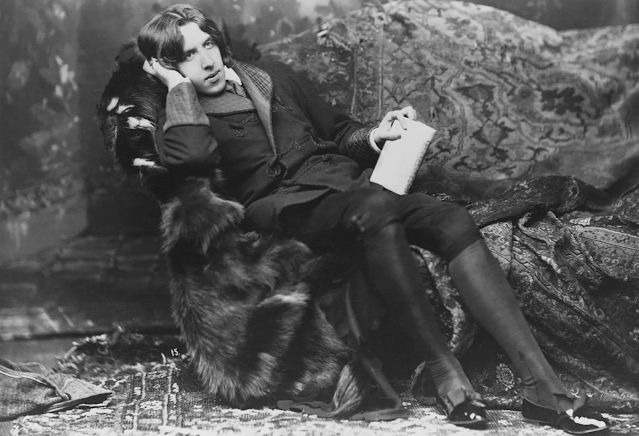Cincinnati SO in Beethoven and Mahler
Beethoven: piano concerto n°4 with Hélène Grimaud. Mahler: symphony n°5. Paavo Järvi, conductor.
- Algernon. Did you hear what I was playing, Lane?
- Lane. I didn’t think it polite to listen, sir.
- Algernon. I’m sorry for that, for your sake. I don’t play accurately - any one can play accurately - but I play with wonderful expression. As far as the piano is concerned, sentiment is my forte.
The French musical world has a tendency to agree with Oscar Wilde’s Algernon. Actually playing all the notes right is seen as somehow cold, calculating, hard-hearted. This is something I’ve never become reconciled to in France, and explains why I usually only buy tickets for concerts with visiting orchestras.
The Cincinnati SO might be described as an antidote to the French emphasis on “wonderful expression” at the expense of accuracy. Indeed, their playing on Friday evening was so forthright and “in your face” it was tempting to imagine that, just three days after George Bush’s re-election, they were saying: “Yeah, you effete, cheese-eating sentiment-monkeys, we’re from Ohio. So what?” But at the same time, they teamed up with Hélène Grimaud, who was clearly on Algernon’s side: sentiment, not accuracy, was her forte.
Comparisons are odious, but the Cincinnati band, perhaps unwittingly, invited them. Only last week, the LSO was here, playing Mahler’s 7th under Boulez; and not so long ago, Sir Simon brought his Berliners along to do Mahler’s 5th. My neighbours were odious enough to voice the comparisons at the end of the concert. “It wasn’t as good as the Berlin Philharmonic,” said one; “They aren’t the LSO,” said the other. How odious can you get? The Ohio orchestra has the qualities you come to expect from a decent American orchestra, starting with the professionalism that leads, first of all, to accurate playing and excellent ensemble. What they lack is, I suppose, a degree of refinement. The brass and horns were bright and loud and together, and the principal trumpet and horn both received individual ovations after the Mahler.
But there was a touch of the brash there, as also in the woodwinds, who seemed to find soft playing hard to achieve. The principal oboe was very elegant, but clarinets and especially bassoons sounded very much as if someone were blowing hard through reeds into a wooden tube. Which of course they were, only ars is, after all, supposed to celare artem. The strings, again, had all the accuracy and vigour you could want, but were not able to provide the huge, sustained fortissimo sound sometimes needed when left to themselves in the Mahler and somehow lacked lustre, making for a rather unmoving Adagietto. Is Ohio a dry state? Overall, the sound was never lush (with the exception, perhaps, of the cellos and basses) and the passages that really need a good dose of imperial Viennese Shmaltz tended to remain stoically Ivesian.
But it wasn’t my intention here to knock them hard, and despite the election results the Parisians gave them a very enthusiastic welcome and enough applause eventually to win an encore (Sibelius' Valse Triste) in which, oddly, the strings suddenly discovered a sheen they hadn’t displayed in the Mahler.
I’m not sure I care to hear Beethoven on bland, modern instruments any more, and I couldn’t help feeling Hélène Grimaud’s fleetness and lightness of touch would work better on a period piano. She had trouble, in rapid runs on the Châtelet’s Steinway, getting all the notes to sound in rapid runs, sometimes had strings jangling together, and gave us one or two plonking wrong notes. Sentiment, as I said above, was her forte, and the extraordinary middle movement (what a genius Beethoven was – it does no harm to say it again) was by far the best.
Paavo Järvi is an obvious pseudonym. The man on the podium was clearly Vladimir Putin.




Comments
Post a Comment